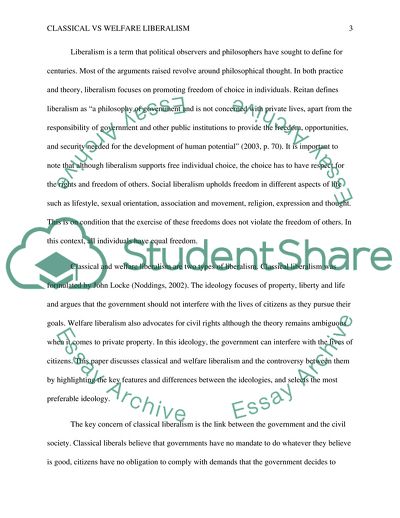Cite this document
(Classical vs. Welfare Liberalism Analysis Coursework Example | Topics and Well Written Essays - 1500 words - 42, n.d.)
Classical vs. Welfare Liberalism Analysis Coursework Example | Topics and Well Written Essays - 1500 words - 42. https://studentshare.org/philosophy/1834708-essay
Classical vs. Welfare Liberalism Analysis Coursework Example | Topics and Well Written Essays - 1500 words - 42. https://studentshare.org/philosophy/1834708-essay
(Classical Vs. Welfare Liberalism Analysis Coursework Example | Topics and Well Written Essays - 1500 Words - 42)
Classical Vs. Welfare Liberalism Analysis Coursework Example | Topics and Well Written Essays - 1500 Words - 42. https://studentshare.org/philosophy/1834708-essay.
Classical Vs. Welfare Liberalism Analysis Coursework Example | Topics and Well Written Essays - 1500 Words - 42. https://studentshare.org/philosophy/1834708-essay.
“Classical Vs. Welfare Liberalism Analysis Coursework Example | Topics and Well Written Essays - 1500 Words - 42”. https://studentshare.org/philosophy/1834708-essay.


